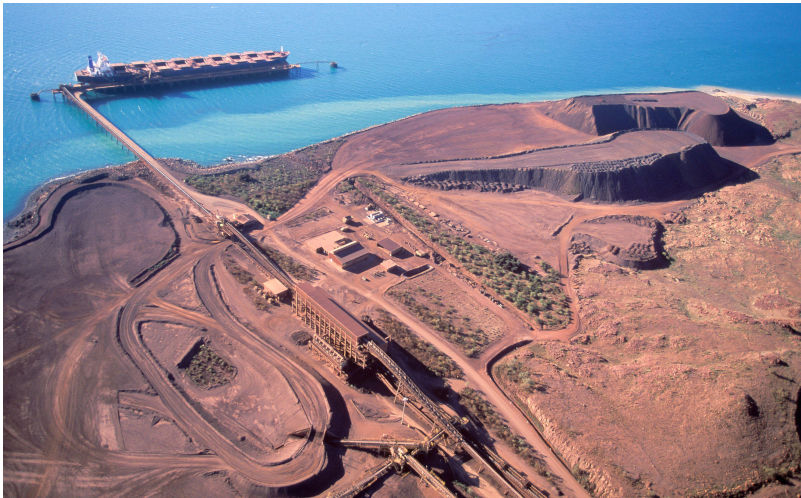Trump's IMO veto exposes Australia's maritime blind spot
November 1, 2025
Protecting Australia’s sovereignty was a central justification for Anthony Albanese’s critical minerals deal with Donald Trump.
Yet we hold just 28 days of diesel reserves — while controlling 56% of global iron ore exports. On 17 October, we discovered which dependency truly matters when maritime nations voted on shipping emissions in London.
The International Maritime Organisation’s extraordinary session ended earlier this month with a narrow but consequential vote: 57 countries backed a one-year delay to the Net Zero Framework for global shipping, while 49 — including Australia — voted to proceed. The postponement came after President Trump posted to Truth Social calling the framework a “Global Green New Scam Tax on Shipping”, with the US State Department threatening tariffs against any nation supporting the measure.
For an island nation handling $650 billion in exports annually, this should be alarming. We’re watching others write the rules that will govern the ships carrying our exports – while positioning ourselves as a future supplier of the very fuels those ships will need.
The strategic asset we’re not using
The real story lies in one commodity: iron ore. Australia controls 56% of global iron ore exports through just six strategic ports. More than half the world’s iron ore flows from Western Australia to steelmakers in China, Japan and South Korea. These are our routes. Our cargo. Our potential leverage.
Here’s the mechanism most analyses miss: port authorities can set environmental standards for vessels as conditions of access. Ships collecting Australian iron ore must meet whatever fuel availability and emissions reporting requirements we establish. If Australia mandated green fuel availability at our six major ore terminals — aligned with Japan and South Korea — the market would respond.
The precedent exists. The EU’s FuelEU Maritime regulation sets greenhouse gas intensity limits for ships calling at European ports. California’s port authorities have driven vessel speed reductions through similar mechanisms. Australia could establish equivalent standards, creating a de facto Asian maritime corridor framework.
The economic logic extends beyond protecting our $137 billion annual iron ore trade. Australia is investing heavily to become a green hydrogen and ammonia exporter – precisely the fuels international shipping needs. Setting maritime fuel standards now creates guaranteed demand for Australian exports.
Legitimate concerns deserve engagement
Several concerns warrant examination. First, China dependency: aggressive Australian standard-setting risks China accelerating alternative suppliers in West Africa or Brazil. However, this risk exists regardless – climate disruption already incentivises supply chain diversification. The question is whether Australia uses its current advantage to shape the transition.
Second, capital costs for shipping companies represent a genuine burden. This is precisely why they want regulatory certainty. The International Chamber of Shipping supported the IMO framework because fragmented regional standards cost more than unified global rules.
Third, regulatory arbitrage: ships could register in jurisdictions without green fuel requirements. This misunderstands the constraint. Ships calling at Australian ports must comply with our requirements regardless of flag state – just as they comply with Australian biosecurity and customs regulations.
What Australia must do
The Albanese Government has built foundations: the South Korea Green Shipping Corridor Memorandum, the Australia-Singapore Low Emissions Maritime Initiative, and $30 million for shipping innovation. Transport Minister Catherine King’s draft Maritime Emissions Reduction National Action Plan awaits release. These need immediate activation.
First, release MERNAP without delay with two concrete actions: establish measurement and reporting systems interlocking with EU standards and legislate domestic biofuel sustainability safeguards.
Second, accelerate green corridor partnerships with Japan, South Korea and China into binding agreements within six months. These three nations represent our largest iron ore customers and share our interest in orderly maritime transition. Joint standards create de facto rules for Asia-Pacific shipping without waiting for IMO consensus.
The window is narrowing
The IMO postponement highlights a broader reality: the global maritime transition will be fragmented and contested. China is already investing heavily in green shipping technology. If Australia waits for global co-ordination that may never arrive, the early opportunities vanish.
The ships need to decarbonise regardless of what the IMO does. They’ll buy green fuels from someone. We can watch other nations capture the maritime fuel transition, or recognise that real transformation lies in becoming the fuel supplier for the ships that carry our exports. The next 12 months will determine whether we shape an orderly regional transition or bear the costs of a chaotic global one.
The views expressed in this article may or may not reflect those of Pearls and Irritations.

